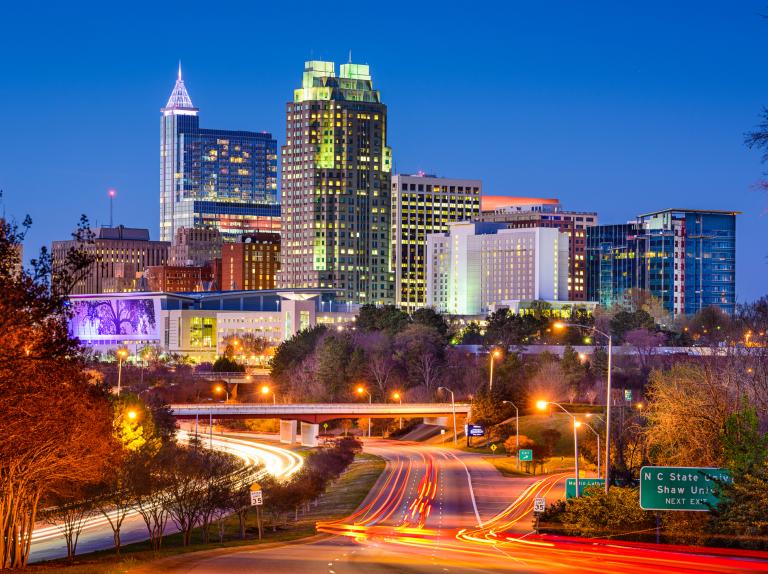
A wealth of intellectual capital to enrichen events and the local community
Nurturing connections and conversations, Visit Raleigh taps into its wealth of intellectual capital to enrichen events and the local community alike. Loren Gold, Executive Vice President of Visit Raleigh, explains how his team works deeply in the community to help create events that attract and entertain attendees.
Aligning key industry heavyweights with planners
Intellectual capital is a key part of any successful event. People come together to learn, and every destination has a different set of readily available intellectual capital from various industries. Raleigh has three major universities and Research Triangle Park, an area with 130+ companies and 65,000-70,000 employees. It’s this combination of academic and private assets that makes Raleigh a great resource for planners.
Tapping into expertise can take some legwork, but many CVBs have the connections to help. “We tailor our prospecting sales strategy to find groups that align with key industry clusters in our backyard, giving the planner access to speakers, sponsors and exhibitors,” notes Gold.
Leveraging community connections to create multifaceted events
Elevating the community with the right connections benefits both events and the destination. Gold describes how Visit Raleigh has worked as a community connector with local corporations, bringing meetings that were typically outbound back to Raleigh. “They’re proud of this region and city, and it’s their opportunity to showcase what’s going on at their headquarters, in their backyard and in their city.”
As an example, Visit Raleigh was able to help with the logistics of a local software company‘s conference. The company previously held the conference at their headquarters, but moving it into the downtown convention center made it possible for them to leverage their presence in the market.
In a similar situation with another software company, Visit Raleigh facilitated conversations in a niche market to achieve the event’s goal. That software company held a conference downtown, but did facility field studies throughout the community. The CVB knocked on doors to explain what the company was trying to accomplish. The community gave the company a warm welcome and the event itself embraced the community, using area cuisine and music for a hyperlocal experiential dive into the market. “It allowed this local company to showcase who we are, our home state and city, and really welcome their industry in a way that can’t be duplicated in another city. Each destination has to find a way to make it a unique experience to their own city,” Gold says.
Emphasizing strategy over transactions
From the earliest planning stages of a successful event, the process should be less of a transactional experience and more strategic. Gold explains, “We have to deliver on the vision the client has for the event. If the client gains clientele, gains market share or ultimately gains profits because of our efforts here, then we’ve done our job.” And on the flip side, the economic impact on the community should be positive, too. “A great place to live and a great place to work start with being a great place to visit,” Gold says. “Raise the quality of life and you benefit not just your community, but visitors to your community, including event attendees.”
It’s easier for planners to attract attendees when a destination is coveted and growing. Visit Raleigh puts energy into creating a top-notch destination experience and listening to what attendees want, from access to content and thought leaders, to activities that appeal to an event’s specific demographic.
“I think when you talk about a unique sense of place and the assets that are built from a product development standpoint, that’s the benefit to the planner by way of capturing attendees,” Gold says.
Visit Raleigh demonstrates how local connectors can elevate an event experience. Starting conversations between intellectual resources and planners creates events that are engaging and fulfilling. And listening to the specific needs of attendees makes for events that people want to participate in.
Plan your next meeting in Raleigh. Learn more here.
